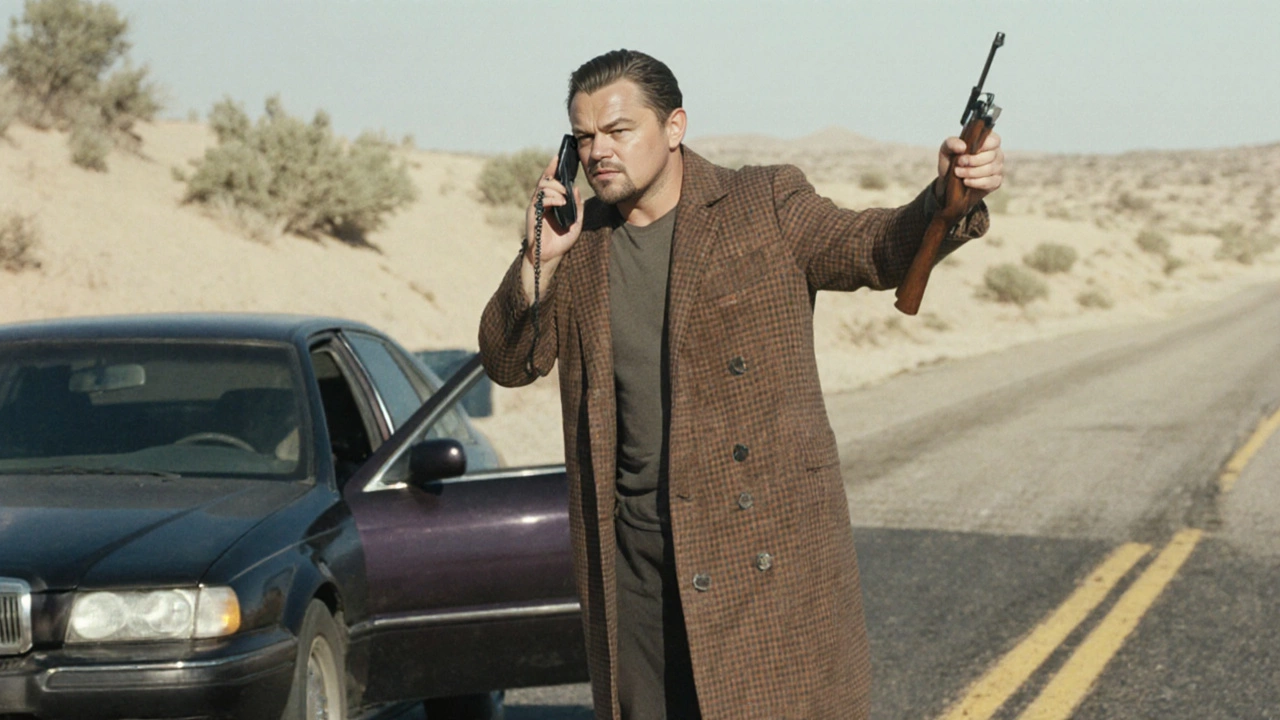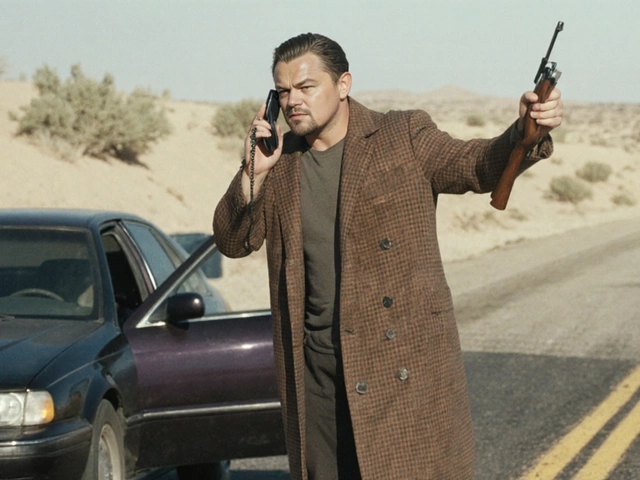
When Leonardo DiCaprio steps onto the red carpet to talk about his latest project, the conversation quickly turns from awards chatter to a bigger industry concern: can a big‑budget, star‑led film still sell tickets in an age dominated by streaming? In a candid interview a week after the premiere of "One Battle After Another," the Oscar‑winner stressed that the movie’s box‑office numbers will send a signal to studios about the viability of theatrical‑first releases.
Why Box Office Matters More Than Ever
DiCaprio pointed to the film’s distinctive visual approach as the reason why a strong theatrical showing is essential. "Paul shot this movie in Vista Vision – cameras that haven’t seen much love since the early ’60s," he explained. "He wants people to feel the impact, the grit, the realism. That’s something you can’t replicate on a laptop screen." By invoking a format that physically fills the screen with richer grain and wider aspect, Anderson hopes to remind moviegoers why the cinema experience feels different from binge‑watching at home.
The actor added that the stakes go beyond personal pride. "If people turn up and vote with their wallets, it tells Hollywood that there’s still room for ambitious, immersive films," DiCaprio said. He warned that a disappointing opening could push studios to favor smaller, franchise‑tied releases that are designed for streaming, further narrowing the creative space for directors who want to experiment with form.

The Film’s Ambitions and Production
"One Battle After Another" blends high‑octane action with a story about redemption and family. Set against a backdrop of political unrest, DiCaprio plays a former revolutionary forced to rescue his daughter from an old enemy turned corrupt military official. The premise allows the film to explore themes of legacy, sacrifice, and the personal cost of past rebellions.
The production budget sits at a hefty $140 million, reflecting both the scale of the set pieces and the technical challenges of shooting in Vista Vision. The cast reads like a who’s‑who of seasoned actors:
- Sean Penn as the ruthless warlord
- Benicio del Toro as the enigmatic double‑agent
- Regina Hall providing sharp, witty support
- Teyana Taylor as the resilient resistance leader
- Chase Infiniti in a surprising cameo as the antagonist’s tech‑savvy lieutenant
Critics have already taken notice. Rotten Tomatoes shows an almost perfect score, and early Oscar chatter positions the film as a potential contender in categories ranging from cinematography to original score. Industry analysts predict it could post the strongest opening ever for a Paul Thomas Anderson feature, a claim that would cement the director’s reputation for marrying artistic flair with commercial appeal.
Beyond the numbers, the movie serves as a litmus test for a broader question: can a director‑driven, star‑powered epic still draw crowds when the market is saturated with franchise sequels and algorithm‑curated streaming hits? DiCaprio’s public push for theater attendance adds a personal stake to the experiment. He hopes audiences will “experience it the way it’s meant to be seen,” a sentiment likely to resonate with cinephiles tired of formulaic releases.
The film’s release strategy also underscores its theatrical ambition. Warner Bros. Pictures opted for a traditional wide release on September 26, 2025, following a high‑profile Los Angeles premiere on September 8. The timing avoids the crowded summer blockbuster window, aiming instead for a fall slot that traditionally favors awards‑season contenders.
As the opening weekend approaches, trade publications are closely monitoring ticket sales, social media buzz, and early audience reactions. Whether the box office validates DiCaprio’s bet could shape how studios allocate budgets for experimental formats and star‑led dramas in the years ahead.


